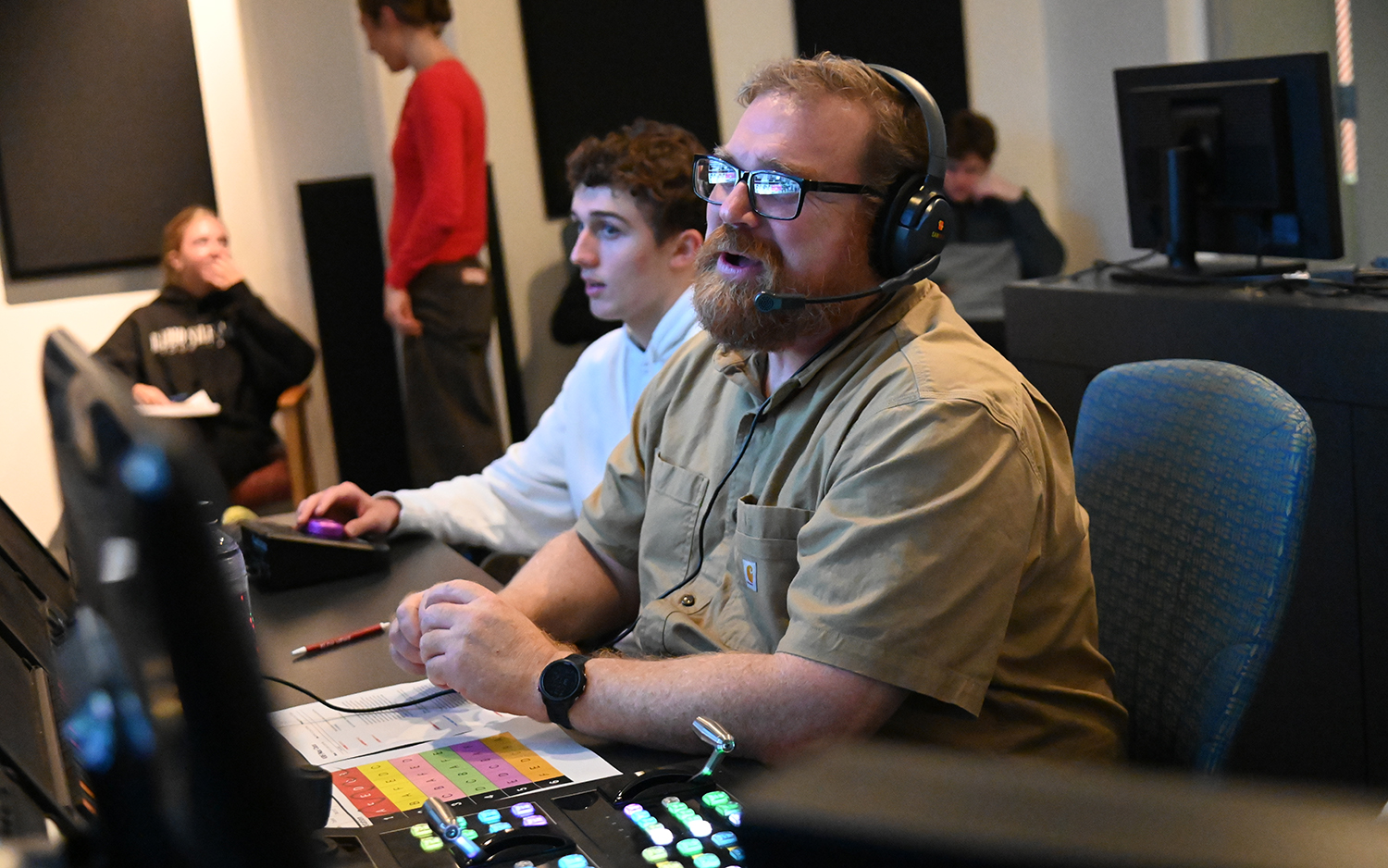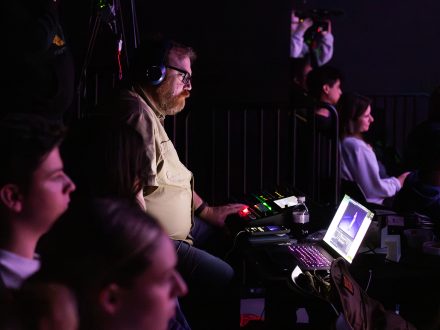The cinema and television arts professor earned a Sports Emmy for his role as a digital replay operator during the network’s 2024 Paris Olympics coverage.

While NBC’s 2024 Paris Olympics coverage captivated millions around the globe last summer, it was a relatively uneventful evening in the network’s replay and editing control room – until Assistant Professor Max Negin spotted a critical error.
Reviewing footage as part of his role as a digital replay operator, Negin noticed something was off after a fellow editor cued up a finished segment and briefly stepped out. The runtime was 21 minutes instead of 13. A duplicated sequence had slipped in, threatening to replay the first half of a tightly contested soccer match – live on national television.

With only seconds to act and too far from the controller himself, Negin turned to another editor and issued a calm but urgent instruction: “You have to trust me. Press it when I say.” The response: “Are you sure?” Then, with seconds remaining – “Now. Now. Now.”
The duplicate sequence was skipped in real time. The transition was seamless. Not a single viewer noticed.
“Aside from the three people holding their breath in the edit room, no one in the main control room or watching at home ever knew,” Negin said. “These are the moments Emmy wins are made of – where years of experience, technological fluency, and unshakable teamwork quietly avert disaster.”
For his efforts, Negin earned his sixth career Emmy Award. He and his NBC/Peacock colleagues were recognized in the Outstanding Technical Team Studio category at the 46th annual Sports Emmy Awards, held May 20 at Lincoln Center in New York City. During the Games, Negin worked 12-hour shifts from NBC’s broadcast facility in Stamford, Connecticut, supporting live coverage of events unfolding in Paris.
While the Emmy is a career highlight, Negin sees the greater reward in what he brings back to the classroom after nearly a month on assignment.
“It’s an invaluable experience. Every time I work the Olympics, I return with insights students can’t get from a textbook.”
– Max Negin,
Assistant Professor of Cinema and Television Arts
That includes conversations with top-tier professionals – engineers, directors, motion graphics artists, and department heads – along with firsthand exposure to emerging technologies such as AI integration and green screen advancements.
This summer marked Negin’s eighth Olympic assignment, a run that began in 2008. Each has brought new roles, responsibilities and challenges.
“I’ve basically done eight different jobs,” he said. “Each time, I’ve had to learn new technologies, adapt quickly, and work with new teams. That kind of resourcefulness is what I try to instill in my students.”
Over the course of four weeks, Negin helped produce everything from full-event replays to highlight packages of overtime thrillers, record-setting performances, and dramatic comebacks.
Negin’s latest Emmy – his third for Olympic coverage – also speaks to the importance of bridging academia and industry. The Elon professor said the professional relationships he builds directly benefit his students.
“I ran into Ellie Whittington ’18 during this most recent assignment and spent an hour catching up, talking through her career steps, and helping her think about what’s next in her career,” he said. “Experiences like this keep me sharp and connected to professionals thriving in the field.”
As the media landscape continues to evolve, Negin believes staying professionally active is key to keeping course content fresh and relevant. The lessons he learns at NBC are woven into Elon Sports Vision broadcasts and other student experiences on campus.
“I feel fortunate for my work and experiences with NBC, and I don’t take that for granted,” he said. “It’s not just about winning awards – it’s about staying current, asking the right questions, and passing that knowledge on to the next generation of Elon storytellers.”


